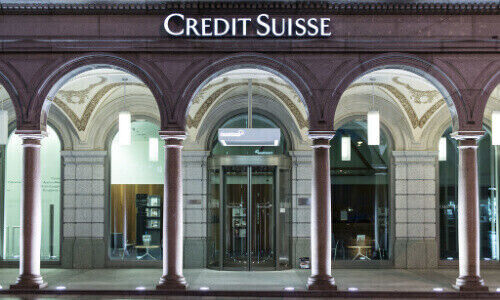The Swiss bank's quarterly loss will be deeper than expected, amid a slowdown with wealthy clients, more hefty legal charges, and goodwill dating back two decades.
Zurich-based Credit Suisse is adding 500 million Swiss francs ($547 million) to its legal bills in the fourth quarter, it said in a statement on Tuesday. The additional charges are likely to push Credit Suisse, which had already warned of a fourth-quarter loss, further into the red.
The crisis-roiled bank said the charge is for provisions is a number of legal cases where it «has more proactively pursued settlements and primarily relate to legacy litigation matters from our investment banking business,» without elaborating. This is partly offset by 225 million francs from selling real estate.
Taking A Toll
Signs are mounting that an annus horribilis – Greensill, Archegos, Mozambique, C-suite drama – may be taking a toll on its business. Credit Suisse said its investment bank is loss-making in the quarter, even before deciding to write down 1.6 billion francs from Donaldson, Lufkin & Jenrette.
It had bought DLJ, a U.S. investment bank, for $11.5 billion in 2000. The fourth-quarter loss from Credit Suisse's investment bank stands in contrast with U.S. rival like Goldman Sachs and J. P. Morgan, which benefited from healthy dealmaking and trading activities in the same period.
Credit Suisse's private bank has seen a «significant» slowdown in transactions – which feeds income – in two of the three units which were merged this month. In Asia, clients took risk off the table amid a market rout, it said.
Wealthy Pull Assets
Clients pulled assets as a result, though these were more than offset by inflows in its asset management business, Credit Suisse said, without specifying. The combined wealth activities are now run by Francesco De Ferrari, one of three new top executives who joined this month.
The asset management arm was peeled out last March, following its disastrous entanglement with Greensill. Credit Suisse, which reports detailed results on February 10, said its main capital ratio will surpass its 14 percent target for 2021, and its leverage ratio is expected to exceed six percent.



































